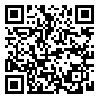1. Shaffer DR, Kipp K. Developmental psychology: Childhood and adolescence. Cengage Learning; 2013.
2. Flouri E, Mavroveli S. Adverse life events and emotional and behavioural problems in adolescence: The role of coping and emotion regulation. Stress and Health. 2013;29(5):360-8. [
DOI:10.1002/smi.2478]
3. Castelao CF, Kröner-Herwig B. Developmental trajectories and predictors of externalizing behavior: A comparison of girls and boys. Journal of youth and adolescence. 2014;43(5):775-89. [
DOI:10.1007/s10964-013-0011-9]
4. Beyrami M. The Effect Of Training Of Parenting Skills With Mothers of School-Boys with Externalizing Disorders on General Health and Style of Parenting. Journal of Fundamentals of Mental Health. 2009, 42,105-114. [Persian]
5. Khanjani Z, Hadavand Khani F. Relationship between Maternal Personality Dimensions with Girls Externalizing and Internalizing Disorders. Journal of Contemporary Psychology. 2012, 7(1), 99 -108. [Persian]
6. Pieters S, Burk WJ, Van der Vorst H, Dahl RE, Wiers RW, Engels RC. Prospective relationships between sleep problems and substance use, internalizing and externalizing problems. Journal of youth and adolescence. 2015;44(2):379-88. [
DOI:10.1007/s10964-014-0213-9]
7. Ogilvie JM, Stewart AL, Chan RC, Shum DH. Neuropsychological measures of executive function and antisocial behavior: A meta‐analysis. Criminology. 2011;49(4):1063-107. [
DOI:10.1111/j.1745-9125.2011.00252.x]
8. Hofmann SG, Asnaani A, Vonk IJ, Sawyer AT, Fang A. The efficacy of cognitive behavioral therapy: A review of meta-analyses. Cognitive therapy and research. 2012;36(5):427-40. [
DOI:10.1007/s10608-012-9476-1]
9. Richardson T, Stallard P, Velleman S. Computerised cognitive behavioural therapy for the prevention and treatment of depression and anxiety in children and adolescents: a systematic review. Clinical child and family psychology review. 2010;13(3):275-90. [
DOI:10.1007/s10567-010-0069-9]
10. Cobb, B., Sample, P. L., AL Well, M., & Johns, N. R. Cognitive Behavioral Interventions, Dropout, and Youth with Disabilities: A Systematic Revise. Remedial and Special Education, 2006, 27, 259- 271. [
DOI:10.1177/07419325060270050201]
11. Chandra A, Martin LT, Hawkins SA, Richardson A. The impact of parental deployment on child social and emotional functioning: Perspectives of school staff. Journal of Adolescent Health. 2010;46(3):218-23. [
DOI:10.1016/j.jadohealth.2009.10.009]
12. Sarrami,Z, Neshat Doost H T, Amiri Sh, Molavi H, Akochekiyan Sh. The Efficacy of Cognitive Behavioral Therapy on Mothers with Obsessive-Compulsive Disorder and on their Children's Depression. Journal of Family Research.2009, 5(4); 533-552. [Persian].
13. Hollenstein T, Granic I, Stoolmiller M, Snyder J. Rigidity in parent-child interactions and the development of externalizing and internalizing behavior in early childhood. Journal of abnormal child psychology. 2004;32(6):595-607. [
DOI:10.1023/B:JACP.0000047209.37650.41]
14. Braza P, Carreras R, Muñoz JM, Braza F, Azurmendi A, Pascual-Sagastizábal E, et al. Negative maternal and paternal parenting styles as predictors of children's behavioral problems: Moderating effects of the child's sex. Journal of Child and Family Studies. 2015;24(4):847-56. [
DOI:10.1007/s10826-013-9893-0]
15. Vidyarthi, A. Parental problem, Child Psychiatry, 2006, 4, 60-80.
16. Presnall N, Webster-Stratton CH, Constantino JN. Parent training: equivalent improvement in externalizing behavior for children with and without familial risk. Journal of the American Academy of Child & Adolescent Psychiatry. 2014;53(8):879-87. e2. [
DOI:10.1016/j.jaac.2014.04.024]
17. Rasouli R, Omedeian M, Sameei F. Effectiveness of Cognitive-Behavioral Therapy in Reducing Maternal Attention Deficit Hyperactivity Disorder on Increasing Happiness of Their Children and Their Parents. Journal of Counseling and Family Therapy.2012, 3(3), 470-489. [Persian].
18. Taklavi s. Training mothers in play therapy and its effects on the behavior problems of learning disabled children. Journal of Learning Disabilities. 2011, 1, 44-59. [Persian].
19. Chacko A, Wymbs BT, Flammer-Rivera LM, Pelham WE, Walker KS, Arnold FW, et al. A pilot study of the feasibility and efficacy of the Strategies to Enhance Positive Parenting (STEPP) program for single mothers of children with ADHD. Journal of Attention Disorders. 2007, 12 (3), 270-280. [
DOI:10.1177/1087054707306119]
20. Loren RE, Vaughn AJ, Langberg JM, Cyran JE, Proano-Raps T, Smolyansky BH, et al. Effects of an 8-session behavioral parent training group for parents of children with ADHD on child impairment and parenting confidence. Journal of attention disorders. 2015;19(2):158-66 [
DOI:10.1177/1087054713484175]
21. Chronis-Tuscano A, O'Brien KA, Johnston C, Jones HA, Clarke TL, Raggi VL, et al. The relation between maternal ADHD symptoms & improvement in child behavior following brief behavioral parent training is mediated by change in negative parenting. Journal of Abnormal Child Psychology. 2011;39(7):1047-57. [
DOI:10.1007/s10802-011-9518-2]
22. Achenbach TM, Rescorla L. ASEBA school-age forms & profiles. Aseba Burlington; 2001.
23. Menaei A. Adaptation and Standardization of the Child Behavior Checklist Achenbach, Self-Assessment Questionnaire and Teacher Report Form. Tehran, Research in the Field of Gifted Children.2006, 6(1), 3-8. [Persian].
24. Danforth JS, Harvey E, Ulaszek WR, McKee TE. The outcome of group parent training for families of children with attention-deficit hyperactivity disorder and defiant/aggressive behavior. Journal of behavior therapy and experimental psychiatry. 2006;37(3):188-205. [
DOI:10.1016/j.jbtep.2005.05.009]
25. Hoying J, Melnyk BM, Arcoleo K. Effects of the COPE Cognitive Behavioral Skills Building TEEN Program on the Healthy Lifestyle Behaviors and Mental Health of Appalachian Early Adolescents. Journal of Pediatric Health Care. 2016;30(1):65-72. [
DOI:10.1016/j.pedhc.2015.02.005]
26. Wilhelm S, Berman NC, Keshaviah A, Schwartz RA, Steketee G. Mechanisms of change in cognitive therapy for obsessive compulsive disorder: Role of maladaptive beliefs and schemas. Behaviour research and therapy. 2015;65:5-10. [
DOI:10.1016/j.brat.2014.12.006]






